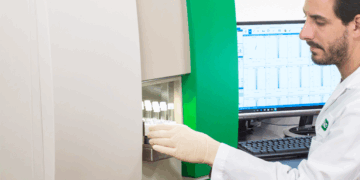For a successful real-time PCR experiment, mastering assay controls and reference gene selection are critical. These key steps in your experimental workflow pave the way for reliable data and help you unlock the full potential of real-time PCR.
Assay controls aid in detecting DNA contamination, validation of PCR performance, and monitoring reverse transcription efficiency, thereby ensuring the accuracy of your experimental data and reliable performance.
Reference genes are expressed in all cells of an organism under different experimental conditions. They play a crucial role in gene expression analysis by providing a stable baseline against which the expression levels of target genes can be compared (Vandersompele et al. 2002). Choosing appropriate reference genes involves selecting candidates from reputable sources, designing experiments thoughtfully, and evaluating the stability profile to identify genes with the least variability for normalization purposes.
While housekeeping genes have traditionally been used in the past as reference genes, they can introduce bias and compromise the reliability of gene expression analysis if their expression is unstable. Given the importance of reference genes for accurate gene expression analysis, it’s preferable to broaden the pool of candidate reference genes beyond housekeeping genes and validate their stability under specific experimental conditions.
Multiplexing is an increasingly popular feature of PCR technology, as it offers enhanced efficiency and versatility in molecular biology applications by simultaneously amplifying multiple target sequences within a single reaction. For multiplexed PCR reactions, the advantages encompass substantial gains in terms of throughput, cost-effectiveness, and time savings, and often outweigh the complexities of experimental design. Droplet Digital PCR (ddPCR) stands out as a great solution for multiplexing PCR reactions with ultra-sensitive detection capabilities and an easier format to achieve multiplexed assay design.
This webinar will equip you with the necessary tools to overcome challenges at each step of the process while exploring the advantages of qPCR and ddPCR platforms across various applications. Additionally, you’ll learn essential techniques and best practices to ensure accurate and reliable collection of real-time PCR data.
Join us for an informative session.
References
Vandesompele J et al. (2002). Accurate normalization of real-time quantitative RT-PCR data by geometric averaging of multiple internal control genes. Genome Biol 3, research0034.1-0034.11.




